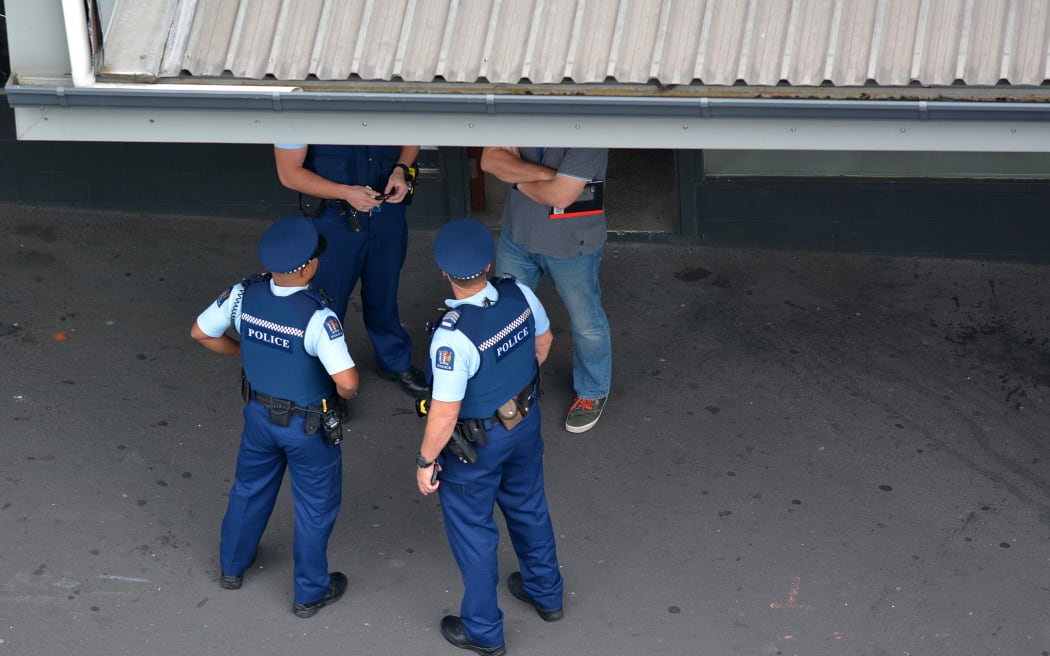
Photo: Rafael Ben-Ari/Chameleons Eye/ 123rf
Police officers have been diverted away from the frontline, trying to deal with an ever-growing logjam in the courts.
The backlog for district court jury trials has doubled in five years, alarming officials that public confidence in the justice system will be undermined.
Police play a vital role in court presenting evidence from their investigations, but problems with disclosing evidence on time have led to trials being delayed or even aborted.
Police responded with Operation Surge, and the courts themselves with "demand-driven" scheduling, to get more cases heard.
But this had strained police prosecution resources, papers released under the Official Information Act showed.
"Police has had to scale up to support Operation Surge, redeploying a number of frontline staff to support the increase in court time since May 2023," a briefing in July to the police minister said.
To help with case preparation and court appearances, police drew on officers with the necessary skills "from around the country... as hearing numbers surged between May and August".
Since then, the Ministry of Justice had confirmed it would continue with the higher rate of court hearings.
Most officers had since returned to the front line.
"There are a very small number of limited exceptions where, due to their personal circumstances, a staff member has remained working in a case manager or prosecutor role as part of the Prosecutions Uplift Programme rather than returning to district."
Even with Police Prosecutions units fully staffed, extra positions created, and bringing in frontline officers, more was needed.
So police have now come up with a $26 million, two-year plan for adding 100 staff - 44 new hires - into prosecutions by 2025, on salaries of up to $365,000.
"This will relieve the pressure of police redeploying constabulary resources to deliver the increase in scheduled hours to address the backlog."
Government ministers signed it off in July, despite Treasury stating that a cheaper $21m plan should be looked at.
The police plan will take a large chunk out of a 'justice cluster' contingency fund of up to $27m a year. The fund was already under pressure from having to pay $5m compensation for the wrongful conviction of Alan Hall and to upgrade a prison, Treasury said.
Police held out the prospect of getting officers back on the beat.
"Once funding is confirmed, police will backfill these roles to enable staff to return to the frontline," it told ministers.
Police play a vital role in court presenting evidence from their investigations. They have a duty to disclose what they have to defence lawyers. However, delays have been bedevilling this 'disclosure' process and tripping up cases.
In August, a High Court murder trial in Auckland was aborted after it emerged police had not disclosed 250 photographs and two notebooks in time. Police are reviewing what happened in that trial, and RNZ has asked for the outcome.
The OIA briefings noted that defence lawyers were too often being left in limbo by delayed disclosure.
"Defence lawyers do not have sufficient information to properly advise defendants about whether or not to elect a jury trial, so they advise defendants to elect a jury trial just to preserve their options," a briefing said.
This was one reason the wait list for district court jury trials has almost doubled since 2018, to 1700 cases. The wait time has recently lifted from 374 days to 500.
"This presents risk to the integrity of, and public confidence in, the court system and adversely affects participants including defendants, victims/survivors and witnesses," police told ministers in July.
New guidelines for the High Court came out in March, to introduce pre-trial conferences between both sides "to put measures in place to avoid delay in making disclosure from disrupting criminal trials".
The courts told RNZ on Tuesday the Justice Ministry had not collected any data to measure the impacts of the guidelines.
Retired district court judge, Dr David Harvey in online comments said that the "same approach should be adopted in the DC [district court] without delay".
"I recall disclosure often clogged the progress of a case. Very frustrating and a churn contributor," he said.
Police's $26m spend was on top of $90m for the courts to get another 15 judges, under the Criminal Process Improvement Programme, or CPIP, that began being tested in three district courts in September. This also introduced new "demand-driven" scheduling for when and where it heard cases.
In the police plan, the need for a strong back office was clear.
"Providing administrative support to progress a case will enable more timely disclosure and free up frontline staff for deployment into communities or emergencies."
Police told ministers its plan aimed "to quickly make a significant difference in capability and capacity".
It had to move away from a"just-in-time operating model" towards what it dubbed "meaningful court appearances", "to ensure we have ongoing public confidence in the court systems, and victims and defendants receive the service they expect and deserve".
Short-term jobs would be turned into fixed-term ones, and they would take on some subject matter experts for initial hearings and bail applications.
"File quality will improve, and disclosure will be made in an increasingly timely way, resulting in a reduction in the number of adjournments."
A project manager position was expected to pay $365,000, and a change manager $360,000. Most support staff in the plan would be paid well over $120,000 a year.
"There will be a focus on providing surge capability across the country to respond to increases in location-based demands and challenges."


